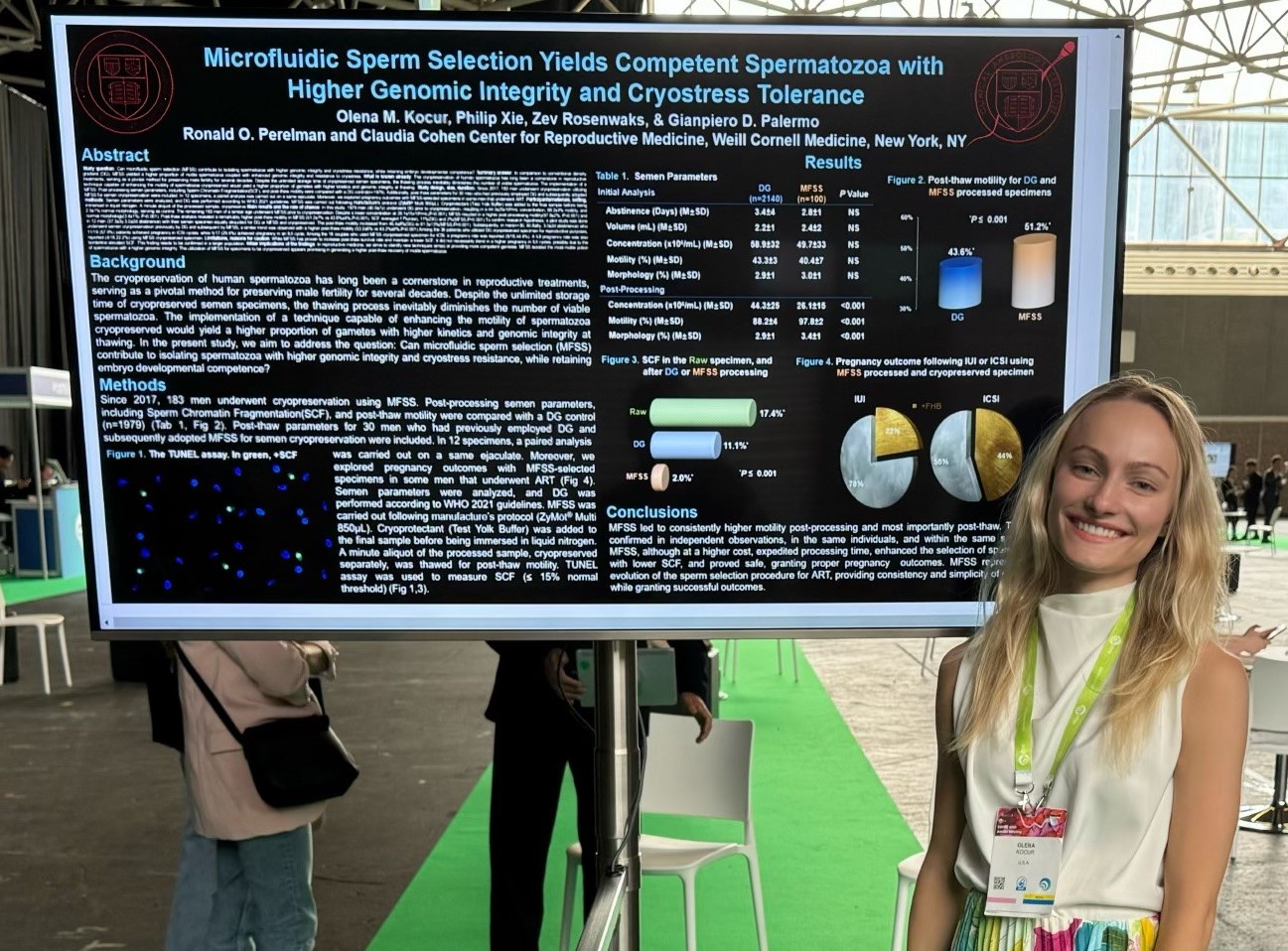SOM Student Advances Reproductive Health Science on the Global Stage
Olena Kocur’s Passion for Reproductive Health and Science Has Already Led to Presentations at an International Conference

Olena Kocur, SOM Class of 2027, is passionate about reproductive health and science. That passion has resulted in multiple publications in medical journals and most recently three poster presentations at the 40th Annual Meeting of the European Society of Human Reproduction and Embryology in Amsterdam in July.
“The field of reproductive health and science fascinates me, particularly because there remains a vast amount of knowledge yet to be discovered,” says Kocur. “The potential to contribute to groundbreaking advancements in this area is incredibly appealing. My ultimate dream is to pursue a career in reproductive medicine, where I can make a meaningful impact for couples seeking to grow their family.”
Among the studies presented at the conference was a study that focused on identifying male gamete fertilization dysfunction. “Historically, women have often been blamed for infertility. However, we are finding men and women are equally likely to contribute to a couple’s infertility,” says Kocur. “In fact, about one-third of infertility cases are attributed to female factors, another one-third to male factors, and the remaining third to a combination of both partners or unexplained reasons.”
According to the study, current tests for male infertility are often insufficient. “Semen analysis alone fails to address specific aspects of male gamete dysfunction,” says Kocur. “Incorporating additional bioassays to assess chromatin structure, integrity, and acrosomal function offers valuable insights for fertility management in tailoring personalized treatments. This comprehensive approach enhances the understanding of male reproductive health, maximizing the potential for successful in vitro fertilization (IVF) clinical outcomes.”
Beyond the research itself, Kocur also found the experience of presenting at an international conference particularly eye-opening and rewarding. “One notable aspect I encountered was the differing perspectives on the ethical implications of my research. Europeans generally have a very different outlook compared to Americans regarding various aspects of reproductive medicine, such as injecting a single sperm into an egg by intracytoplasmic sperm injection rather than performing standard IVF, gender selection, or embryo biopsy by preimplantation genetic testing for diseases,” says Kocur. “This often led to challenging questions, requiring me to rigorously defend my research. However, engaging in these discussions not only broadened my understanding but also highlighted the importance of cultural context in scientific discourse.”

